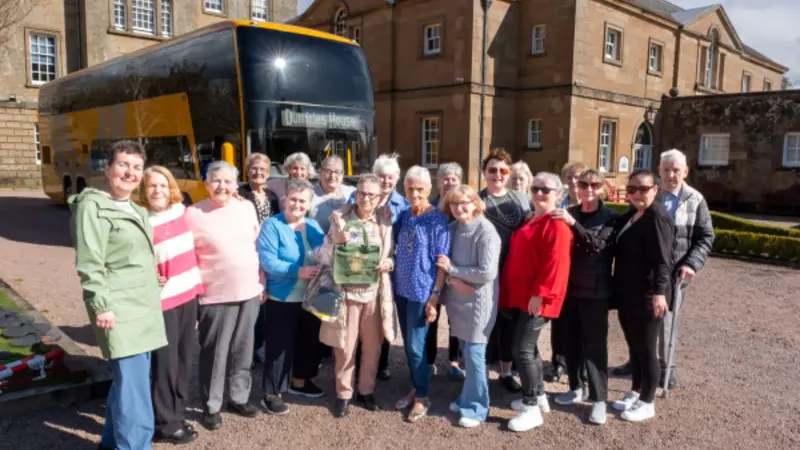Age Scotland launches media guide to help make ageism old news
Age Scotland, the national charity for older people, has published a guide outlining good practice on reporting on older people and tips to avoid ageist attitudes.
‘Making ageism old news- a guide to reporting on older people’ aims to help stakeholders, including politicians and the media, improve how they talk about older people by avoiding ageist and negative stereotypes in the messages and images they use.
Responses to Covid-19 have exposed serious questions about the way we think and talk about older people and highlight the impact those attitudes can have. The charity's recent Big Survey provided a voice for older people across Scotland and found only 7% agreed that older people are represented positively in the media.
The survey explored a wide range of areas of life for people aged 50 and over living in Scotland, including their health and wellbeing, housing, experiences of ageism, representation of older people and the impact of Covid-19. Age Scotland and Scotinform questioned more than 3,500 people aged 50 and over living in Scotland, finding:
Older people prefer the following terminology: “older” “older adults” (21%) and “older people” (20%) when brought together were the most popular, with “senior citizens” at 36%. “Elders” and “elderly people” were less popular, selected by only 7% of respondents.
51 per cent of over 50s said `older people are not valued for their contribution to society’
Only 21 per cent felt that older people were valued, while 25 per cent didn’t know.
36 per cent believed that they were made to feel a burden to society.
The guide has been endorsed by the National Union of Journalists (NUJ) for Scotland and can be downloaded here.
Rachel Bushnell, communications officer at Age Scotland, said:
“Age Scotland has been campaigning over the years to shift the negative narrative that exists around ageing and tackle ageism in all its forms.
We’re delighted to launch our media guide and hope it will be a useful and informative tool for people reporting on issues facing older people and help avoid ageist stereotypes and negative images portraying later life.
Findings from our recent Big Survey painted a stark picture of how older people in feel regarded and portrayed in Scotland, with a third of older people saying they felt a burden to society. It made very tough reading and as the national charity for older people in Scotland, we felt compelled to do something.
We really hope our guide will be a step in the right direction towards changing the narrative around older people in our public discourse, now and in the future, and encourage reporters to highlight the countless positive contributions made by those in later life in Scotland.”
John Toner, NUJ national organiser, Scotland said:
“Age Scotland has performed a very valuable service by identifying terms that are outmoded and offensive to many people. We hope that this sparks a growing interest in how older people’s issues are reported and that.
Sadly, hate speech against older people still seems acceptable in our society, and we fervently hope that this Guide is a major step in reversing this iniquity.
The NUJ is pleased to be associated with the guidance, and we hope that when Age Scotland reviews progress we will see a positive shift.”


